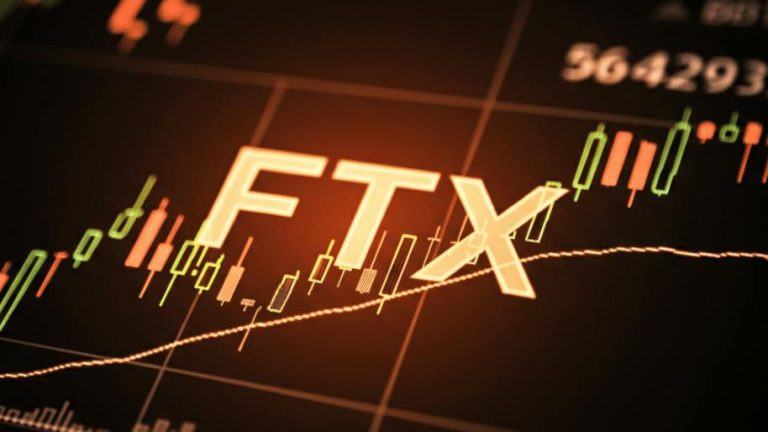The beginning of the year was particularly eventful for the Japanese crypto ecosystem, which is generally considered to be a major part of the industry. First of all, Japan’s Central Bank (BoJ) issued a study on the role of central bank digital currencies (CBDCs) in the current monetary system, a topic that was widely discussed by the country’s officials last year.
Secondly, major domestic trading company and investment bank, Marubeni Corporation and Daiwa Securities Group, reported blockchain-related advancements in their businesses. Finally, local banking giant Mizuho Financial Group announced the launch of its custom stablecoin.
Time to observe this news closer and see what has been happening with crypto in Japan.
It’s still unclear whether Japan will issue a CBDC
Japan’s authorities have been notably hesitant about the idea of introducing a CBDC, which might seem surprising at first, given that cryptocurrencies can be used as a legally accepted means of payment in the country (although they are not considered “legal tender”).
CBDCs — just like Bitcoin (BTC) and altcoins — are also virtual currencies. The main difference is that they are issued and controlled by a federal regulator. Hence, CBDCs are not decentralized, unlike many digital assets. Basically, they represent fiat money, albeit in digital form. Each CBDC unit acts as a secure digital equivalent to a paper bill and can be powered with distributed ledger technology (DLT).
Consequently, if central bank decides to issue a CBDC, it becomes not only its regulator, but an account holder as well, as people would have to store and access their digital money via this bank. That places CBDC-issuing central banks on a par with private banks.
CBDCs could be seen as central banks’ response to the growing popularity of cryptocurrencies, which bypass regulators’ purview due to their decentralized design. Federally-issued currencies, in turn, aim to take some of the main features from crypto — namely the convenience and security — and combine them with the proven attributes of the conventional banking system, in which money circulation is regulated and reserve-backed.
At this point, the BoJ has publicly criticized the concept of CBDCs twice. First, in April 2018, its deputy governor, Masayoshi Amamiya, declared that such currencies can have a negative impact on the existing financial system. Specifically, he expressed his concern about taking on the role of private banks:
“The issuance of central bank digital currencies for general use could be analogous to allowing households and firms to directly have accounts in the central bank. This may have a large impact on the aforementioned two-tiered currency system and private banks’ financial intermediation.”
Then, on Oct. 20, Masayoshi Amamiya expressed his doubts regarding the effectiveness of CBDCs, adding that his agency won’t be issuing its digital currency in the near future.
Specifically, Amamiya responded to a theory suggesting that CBDCs can help governments overcome the “zero lower bound” — a situation in which interest rates fall to zero and the central bank loses the capacity to stimulate the economy. According to this approach, a CBDC would enable central banks to charge more interest on deposits from individuals and firms, and hence motivate them to spend money and vitalize the financial system.
The deputy governor questioned that theory, claiming that charging interest on central bank-issued currencies would only work if central banks fully eliminate physical money from the local economy. Otherwise, the public would still continue converting digital currencies into cash in order to avoid paying interest.
The elimination of fiat money in Japan is “not an option for us as a central bank,” since cash is a popular method of payment in the country, Amamiya added. Indeed, Japanese society is still mostly cash-based, as about 65 percent of transactions are reportedly done in paper money (which is more than double that of other developed economies).
The BOJ deputy governor continued that thought by stressing that his agency is not planning on creating a CBDC that can be widely used by the public for settlement and payment purposes. The shift to bank-issued crypto from the existing sovereign currencies seems to be “quite a high hurdle,” as crypto assets are often associated with speculative investments and do not represent a stable means of payment, he noted.
Further, the central bank examined the role of CBDCs in the current monetary system in a report released on Feb. 19. The paper was written by representatives of the University of Tokyo and the BoJ.
The report divided possible CBDCs into two categories, the first being those accessible to the general public for daily transactions instead of banknotes and the other as those limited for large-value settlements.
Interestingly, after explaining that CBDCs of the latter kind wouldn’t bring a lot of new features to the monetary system — as it has already been digitized — the report’s authors focused on the first category throughout most of the document. The report stressed that DLT could be applied to such token-based CBDCs.
The working paper noted that blockchain-based CBDC could lower the level of anonymity of its users, as cash money cannot be tracked and hence is used for criminal activities. Here, the authors referenced the example of the People’s Bank of China (PBoC), which announced its intent to issue a digital currency to curb tax evasion back in 2016.
Notably, the document doesn’t necessarily reflect the official views of the BoJ and was published to stimulate further discussion on the topic, which suggests that Japanese officials have not given up on the idea of issuing a CBDC.
The FSA continues to apply scrutiny toward the local crypto industry
The Financial Services Agency (FSA), the national financial regulator, is known to have a tight grip on local digital asset exchanges. It comes as no surprise, given that the country has witnessed the two largest crypto hacks in history: namely, last year’s outlandish $532 million Coincheck hack and the notorious crash of Tokyo-based Mt. Gox. In the wake of those security breaches, the watchdog has introduced numerous precautions, including on-site inspections of exchanges’ offices and mandatory risk management system reports.
As per Japan’s Payment Services Act, amended in April 2017, all digital currency exchanges in the country are required to be registered with the FSA. The agency has granted the most compliant players with licenses. Currently, the pool of exchanges cleared to serve the Japanese market currently is represented by 17 platforms: Money Partners, Liquid (previously known as Quoine), Bitflyer, BitBank, SBI Virtual Currencies, GMO Coin, Btcbox, Bitpoint, Fisco Virtual Currency, Zaif, Tokyo Bitcoin Exchange, Bit Arg Exchange Tokyo, FTT Corporation, Xtheta Corporation, Huobi and Coincheck. The latter managed to secure its license just recently, almost a year after it suffered from a major hack.
Notably, the agency’s tough supervision has prompted some major players to quit the Japanese market. Thus, Binance, one of the world’s largest crypto exchanges that had once opened an office in the country, turned to Malta — the famously crypto-friendly country — after the Japanese regulator had slapped it with a warning in March 2018. Similarly, local social messaging app Line has also decided to exclude the domestic market prior to the launch of its cryptocurrency exchange, citing local regulatory difficulties.
Nevertheless, the FSA’s severity hasn’t scared everyone off. As many as 190 exchanges are reportedly pending the agency’s approval to enter the local market. Perhaps the most notable example here is United States-based Coinbase, which has made positive remarks about Japan’s crypto regulatory climate in the past, saying that the FSA’s intense focus on security is “good for us.” Given that Coinbase originally planned to establish its operation in Japan within 2018, the financial agency is likely to approve or decline its application at some point in the next few months.
Moreover, the Japanese arm of the internet giant Yahoo will reportedly open their own crypto exchange “in April 2019 or later.” Other players that will potentially open a crypto exchange in Japan include Mitsubishi UFJ Financial Group, the largest domestic bank, and Money Forward, the company behind a popular financial management application.
In December 2018, the FSA published a draft report that introduced the new regulatory framework for cryptocurrencies and initial coin offerings (ICOs) in the country. In it, the agency continued to strengthen security requirements for local crypto exchanges, focusing on private keys management, among other things. Further, the FSA urged players to join the Japan Virtual Currency Exchange Association (JVCEA), a self-regulatory body comprised of domestic industry participants. Moreover, the financial watchdog suggested that ICOs might become subject to securities regulation in the future. Indeed, previously, local media reported that the agency was going to introduce new ICO regulations to protect investors from fraud.
One of the FSA’s potential next steps is to regulate unregistered firms that solicit investments in cryptocurrencies. According to Cointelegraph Japan, there is a loophole in the country’s existing regulatory framework that allows unidentified companies that collect funds in crypto rather than fiat currencies to stay in a gray zone, and the watchdog intends to close it.
Industry players have asked to reduce the current tax rate
In February 2019, the Japan Association of New Economy (JANE), a business industry association led by Hiroshi Mikitani, the CEO of Japanese e-commerce giant Rakuten, asked the FSA to reduce the current tax rate for crypto trading income.
Specifically, JANE inquired whether it was possible to tax crypto in compliance with progressive taxation instead of general taxation.
According to Cointelegraph Japan, income from trading cryptocurrencies is currently taxed at 55 percent in Japan. Imposing progressive taxation on crypto gains would reduce it to 20 percent — the same rate that is applied to stocks and forex markets in the country. The association has also asked the FSA to impose no tax on crypto-to-crypto transactions.
Previously, in October 2018, local news agency Sankei reported that the Japanese National Tax Agency was planning to adjust the tax filing system for cryptocurrencies in order to corroborate that local traders report their gains.
Currently, such profits are classified as “miscellaneous income” in the country. Basically, Japanese crypto holders have to pay between 15 and 55 percent on gains declared on their annual tax filings. The top amount applies to people who earn more than 40 million yen ($365,000) annually.
Stablecoins and bank-controlled digital currencies are on the rise in Japan
Over the past few months, at least two major digital currencies developed by Japan’s major banks and IT-industry players have received important updates, , the origins of which – as well as a detailing of related projects – was covered in a separate Cointelegraph article.
J-coin
Japanese banking giant Mizuho Financial Group, which has over $1.8 trillion in total assets, will reportedly launch its bespoke stablecoin for payments and remittance services as soon as March 1.
Dubbed “J-Coin,” the new digital currency platform aims to directly link existing bank accounts with digital wallets. According to reports, the project is being developed in a partnership with around 60 counterpart financial institutions — which host around 56 million user accounts combined.
The currency will reportedly be managed by a dedicated mobile app, J-Coin Pay, which uses QR codes at checkout to complete retail payments. As per local financial newspaper Nikkei Asian Review, the currency will resemble a stablecoin fixed at a price of 1 yen (~$0.01) per unit, while transfers between bank accounts and J-Coin wallets are set to be free of charge.
GYEN
In February, domestic IT giant GMO Internet confirmed its plans to launch a yen-backed stablecoin called GYEN this year.
There are few details about the project at the moment. The company’s representatives has so far only revealed that the firm has set up a subsidiary and appointed a person responsible for GYEN operations to issue the stablecoin in 2019.
The company had to shut down some of its other crypto-related operations, however. In late December, GMO announced it was quitting the Bitcoin mining hardware sector, citing “extraordinary loss” in Q4 last year. In Q3, GMO’s cryptocurrency projects reportedly brought the company around 2.6 billion yen ($22.8 million) despite “the harsh external environment.”
Japan’s largest firms are actively tapping blockchain for their business
Numerous Japanese private firms — including banks, brokerages, trading giants and IT players — have announced blockchain-related news within the past few months, cementing Japan’s reputation as one of the most technology-focused countries. Here are the main companies, along with their projects:
Banks and brokerage
Sumitomo Mitsui Banking Corporation (SMBC), Japan’s second-largest bank
In February, SMBC completed a proof-of-concept (PoC) using blockchain consortium R3’s Marco Polo trade finance platform. Marco Polo is a Corda-powered venture developed by R3 and Irish tech firm TradeIX, connecting banks via a trade network.
SMBC, which is currently the only Japanese bank participating in the Marco Polo scheme, said it had partnered with Mitsui & Co. — one of the largest “sogo shosha” (general trading companies) in Japan — to enhance efficiency in trade processes.
“[The] PoC was conducted between SMBC and Mitsui & Co. which aims to improve productivity in its trade operations, by testing modules such as Receivable Finance and Payment Commitment (Payment Undertaking),” the press release explained, adding:
“SMBC expects to commercialize Marco Polo in the first half of FY2019 [the financial year 2019] after verification of the PoC.”
Daiwa Securities Group, Japan’s second-largest securities brokerage
Daiwa Securities had also announced the completion of a blockchain PoC.
The pilot project, dubbed “JPX Proof-of-Concept Testing for Utilization of Blockchain / DLT in Capital Market Infrastructure,” allegedly involved 26 companies, including financial institutions, system providers and institutional investors. The reported goal of the pilot was to increase the efficiency of blockchain tech in the post-trade process.
According to the results of the trial, the blockchain system is expected to reduce operational costs and allow for the easier development of new products and services.
SBI Holdings, the first bank to own a cryptocurrency exchange in Japan
SBI Holdings has also struck an agreement with R3 to work in Japan, purportedly to develop local use of its Corda blockchain platform.
According to the official announcement, the new joint venture will “support provision and introduction of the Corda license, arrange schemes for its actual use beforehand, as well as promote collaboration with overseas offices of R3 and other Corda partners.”
Mitsubishi UFJ Financial Group (MUFG), the world’s fifth-largest bank
On Feb. 20, MUFG announced it will launch a new blockchain-based payment system in collaboration with U.S. content delivery network Akamai.
Titled the “Global Open Network,” the platform aims to utilize MUFG’s payment industry reach to strengthen its position in the increasingly competitive blockchain payments market. The project is scheduled to launch in the first half of 2020.
Previously, MUFG had revealed its initiative to establish a remittance corridor with Brazil using Ripple (XRP).
IT
Itochu, one of the five-largest companies in Japan
On Feb. 1, Itochu announced the start of a PoC aimed to develop a blockchain traceability system, in which buyers and sellers can record the date, time, location and other transaction details on blockchain through a mobile app.
The press release stresses that the start of the new trial is contributing “to the achievement of the 17 Sustainable Development Goals listed in ‘The 2030 Agenda for Sustainable Development’ adopted by the United Nations.” It also adds:
“The aim of developing a blockchain traceability system [is to ensure] stable procurement and supply of raw material for our investment companies and trading parties, improving the traceability of its distribution.”
Line, host of Japan’s major messenger app
As 2018 was drawing to a close, Line signed a memorandum of understanding with local financial player Nomura Holdings to form a blockchain alliance.
Nomura — which provides investment, financing and related services to individual, institutional and government customers — Line and LVC Corporation — which oversees messenger’s digital asset and blockchain business units — will reportedly sign a formal contract by the end of March 2019. More details will be announced closer to the date.
As Cointelegraph previously reported, Line is actively involved in developing crypto products. For instance, in January 2018, the company announced it would launch its own crypto exchange and in-app trading space for its 200 million active monthly users.
Energy and utilities
Marubeni Corporation, Japanese trading company that has expanded into the U.S. and Europe
In late February, Marubeni teamed up with U.S.-based blockchain startup LO3 Energy to use the technology to increase automation and efficiency in its renewable energy offerings.
“The Japanese energy sector is in the midst of a drastic transition, and there are increasing numbers of private power producers and suppliers interested in developing new customer offerings particularly in the renewable energy space,” LO3 Energy CEO Lawrence Orsini commented in the press release:
“Initially this project is internally focused, but it is very much driven by the desire from Marubeni to explore the opportunities that blockchain management systems can offer in the transaction of energy throughout Japan.”
Fujitsu, Japan’s IT firm, a Global 500 company
On Jan. 29, Fujitsu reported that it successfully tested a blockchain-based solution to address inefficiencies in electricity surplus management.
Specifically, Fujitsu partnered with local power distribution company Eneres to use the technology to increase the success rates of power sharing, which is administered through a process known as Demand Response (DR).
DR is an agreement between utility companies and consumers, aimed to anticipate periods of peak demand by ensuring surplus power is available to those who need it.
Fujitsu claims that, in its current form, DR is an inefficient mechanism and blockchain has proven to improve it.
“Fujitsu has now devised a system in which electricity consumers can efficiently exchange among themselves the electricity surpluses they have produced through their own electricity generation or power savings,” the press release reads, noting:
“The result was an approximately 40% improvement to the DR success rate.”




